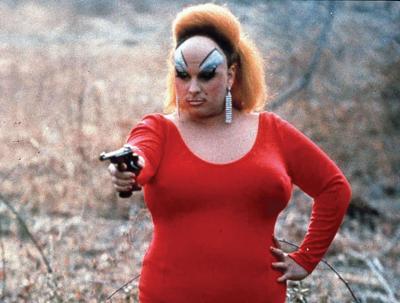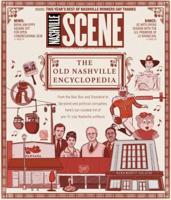Given the landfill of perversions that Pink Flamingos offers, the most shocking aspect of the five decades it has spent lurking in the subconscious and rhetorical basements of the United States is that it feels more like prophecy than an assault. Nothing that writer-director and national treasure John Waters and his cinematic band of misfit toys the Dreamlanders dug up from the most unspeakable places in the domestic id is more than a click away these days. Flamingos’ central conflict — between notorious criminal Divine and her family and villainous power couple Raymond and Connie Marble to determine who, in fact, are the filthiest people alive — is exactly in line with the lower rungs of reality television and the uppermost reaches of “influencer culture.” If Here Comes Honey Boo Boo’s Mama June dating a convicted child molester doesn’t disqualify you from being on TV, then nothing in this film would either.
There is rightfully an aura of legend around Pink Flamingos — time has in no way dulled its edges. It is solidly spoken of in the hushed tones devoted to the legends of frat-dare cinema — the Salòs, the Emanuelle in Americas, the Guinea Pigs, the August Underground’s Mordums, the Cannibal Holocausts — but it occupies a unique, some would say singular, place in that pantheon because it is incredibly witty. Quotable, even. Waters and his work have always had a gift for florid characterization, and his magical ability to weave the invective and the incisive together into laceratingly funny diatribes is one of the reasons why this deliriously grotesque film is still part of the American conversation. Aside from industrial bands looking to load up their samplers, nobody’s pulling quotes out of the giants of extreme cinema. But even today, you could ask any medium- to large-size gathering of people what their favorite line from Pink Flamingos is, and you’d not only get a lot of responses — you’d get a staggering variety of lines chosen. There is gutter magic in this film.
But the script is only part of what makes this such a compelling work. This is as close as humanity ever got to a complete Dreamland cast (minus the iconic Maelcum Soul), and everyone is firing on all cylinders. Though this film belongs to Divine — both the performer and the character — the ensemble is giving till it hurts. As the deviant capitalist Marbles, David Lochary and Mink Stole bring shrimping and mercenary heterosexuality to the screen with Kool-Aid-colored hair as if to invite the wrath of God, even as their money and business operations insulate them from the public aspects of true filth. Novelist/raconteur Cookie Mueller (seriously, read her essential and life-changing book Walking Through Clear Water in a Pool Painted Black) makes quite the impression as an industrial spy, and as Divine’s polymorphously perverse son Crackers, Danny Mills is photographed with the rockabilly manchild love and care that Russ Meyer would devote to bosoms.
But the kind heart of the film (truthfully, the only kindness to be found within it, which is one of the reasons why Pink Flamingos has never not been relevant) is Mama Edie (Edith Massey), Divine’s playpen-dwelling mother who derives joy only from eggs — and the man who brings them to her. Before the film’s body count ramps up too high, Edie is granted a wheelbarrow ride to ecstasy and a life filled with eggs, and it’s a graceful and sweet gesture in a film that instinctively understands that America is a no-holds-barred game show where every round is sudden death.
Divine is, to paraphrase Lana Turner in Imitation of Life, “More. Everything. Maybe too much.” You can ask a dozen theorists what drag is, and you’ll get a dozen (or more) answers. But Divine, in Pink Flamingos, is drag as a warning — a bleach-blond wig with mayhem on her mind, a locomotive bound for fame and felonies, a hearty, colorful “Fuck You” being bellowed at every form of complacency. No matter how many times you’ve seen the film, or been warned, or heard tell of what awaits the viewer during this film, it’s never enough for the viewer to take anything for granted. The myriad horrors that Pink Flamingos offers are a catalog of atrocities played for triumph. It’s a lesson that the Jackass media empire learned well, and also an inspiration that’s always been an accurate assessment of what American exceptionalism truly represents. As that other great American icon Sally Bowles once said, “Everybody loves a winner.”





